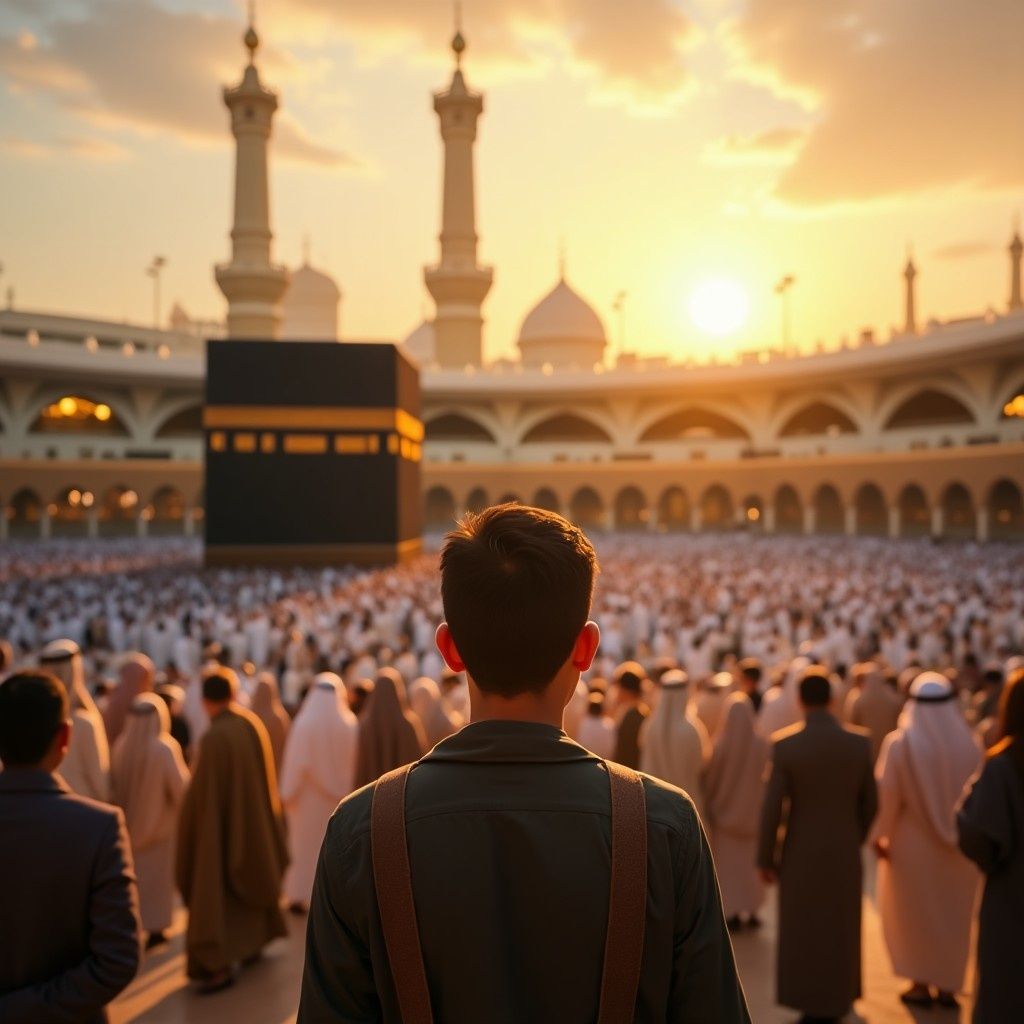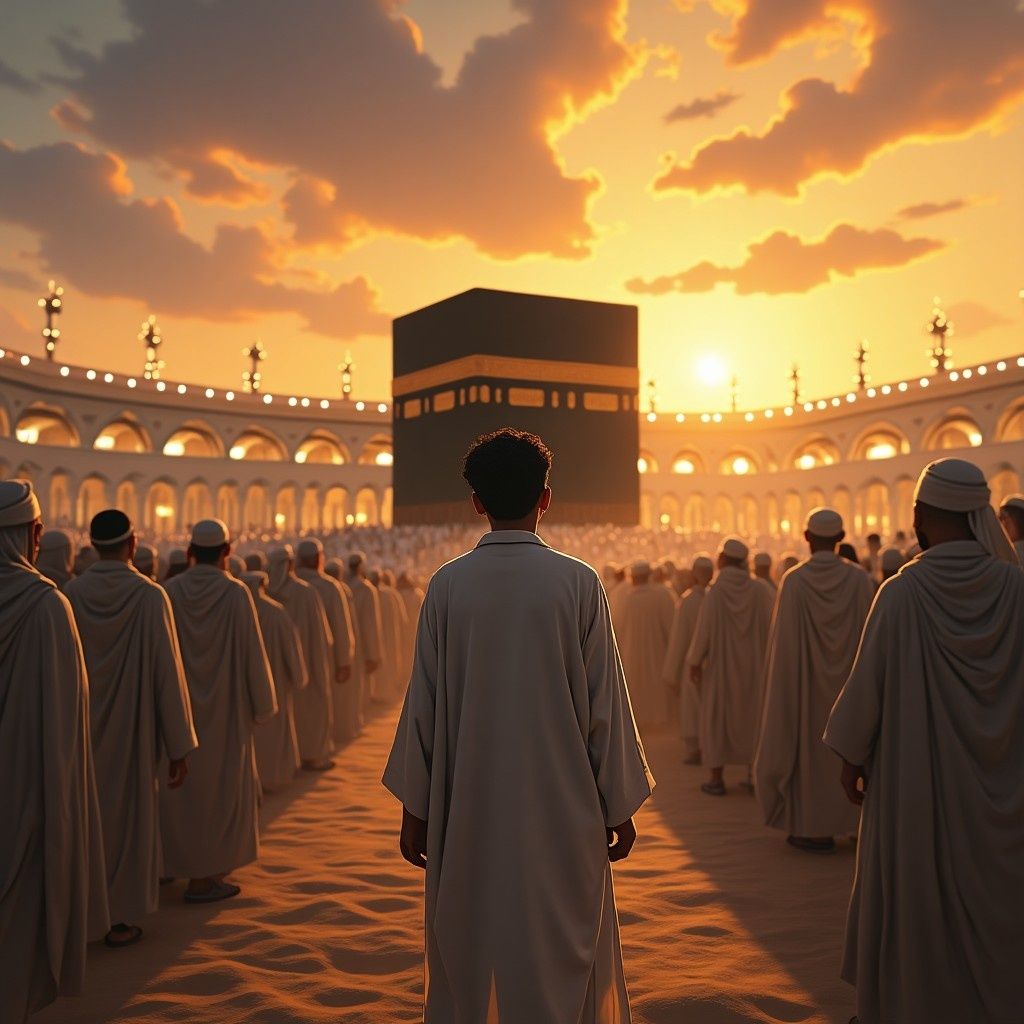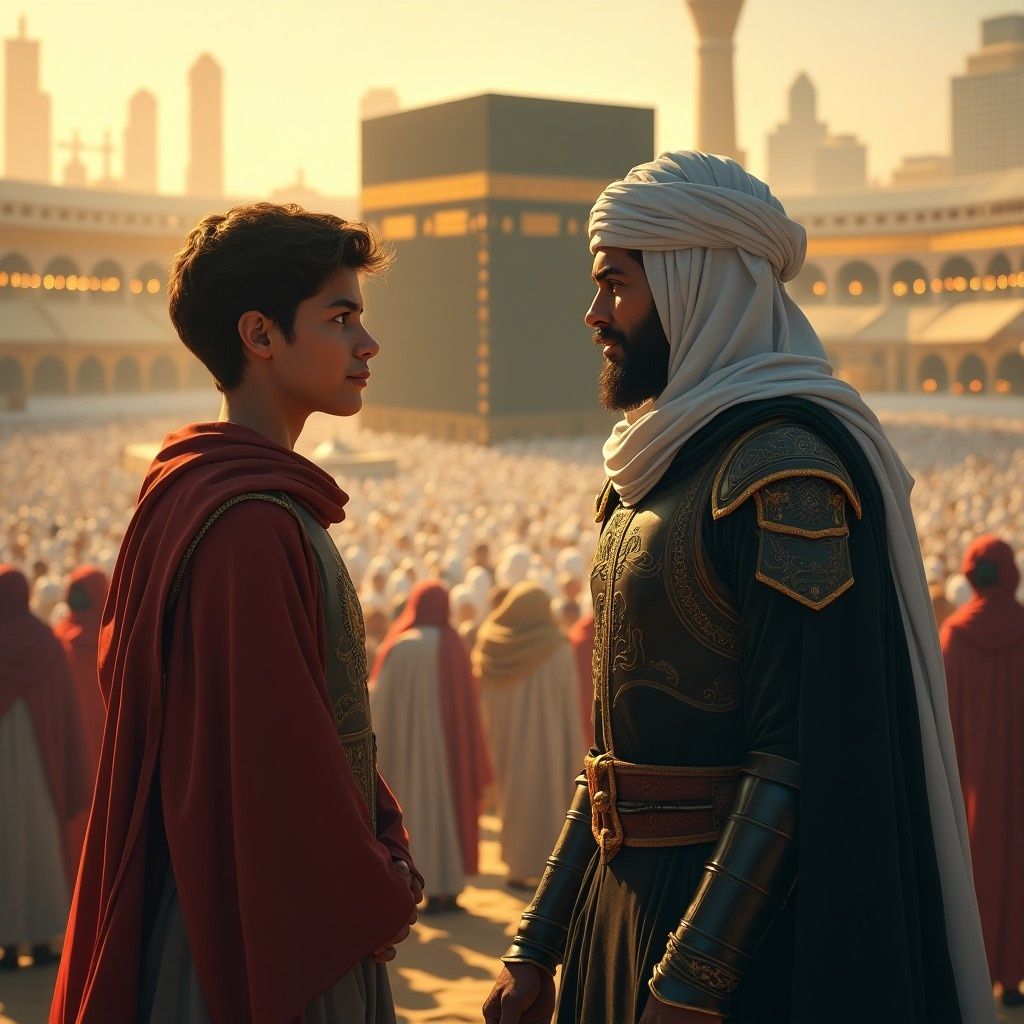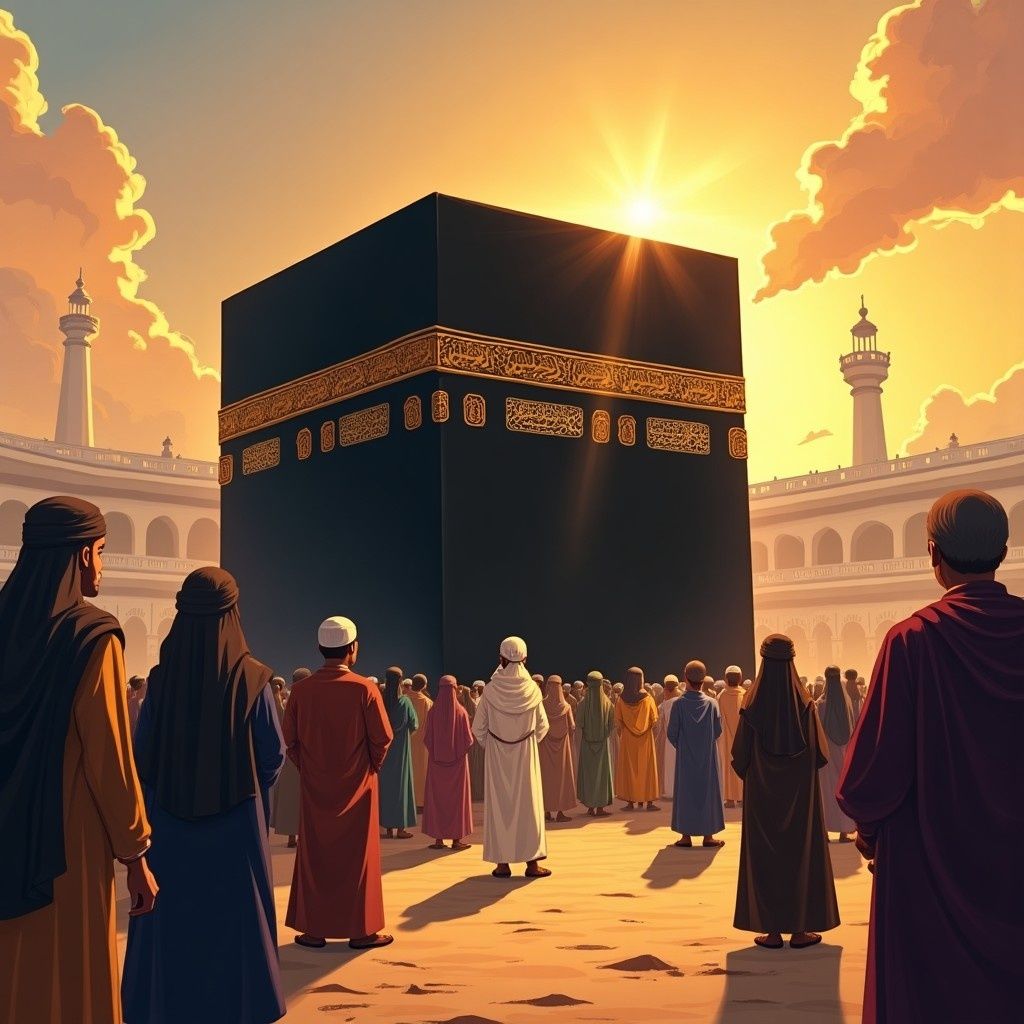**The Echoes of Stone**
The air in Mecca was thick with anticipation, a palpable energy that coursed through the throngs of pilgrims who had gathered for the sacred Hajj. Among them was Tariq, a young man with eyes as bright as the desert sun and a heart full of devotion. He had journeyed from the far reaches of the Abbasid Caliphate, his soul yearning for the peace and fulfillment that only the holy city could provide.

As Tariq approached the Kaaba, the center of his faith, he marveled at its austere beauty. The Black Stone, nestled within its walls, seemed to pulse with a divine energy, drawing the faithful closer. It was a symbol of unity, a testament to the enduring spirit of Islam. But that morning, the serenity of Mecca was shattered. The ground trembled beneath the thunderous approach of the Qarmatians, a radical sect led by the enigmatic Abu Tahir al-Jannabi. Their arrival was swift and brutal, a storm of chaos that descended upon the city with merciless fury.

Tariq watched in horror as the Qarmatians, clad in dark armor and driven by a fervor that bordered on madness, unleashed their wrath upon the pilgrims. The air was filled with cries of anguish and the clashing of steel, a cacophony of violence that reverberated through the sacred city. In the midst of the chaos, Tariq's eyes met those of a young Qarmatian soldier, a boy no older than himself. There was a flicker of recognition, a shared humanity that transcended the bloodshed. But it was fleeting, swallowed by the tide of violence that swept over them. Abu Tahir, with a voice that boomed like thunder, ordered the desecration of the Kaaba. Tariq watched, helpless, as the Black Stone was pried from its sacred resting place, an act of sacrilege that sent shockwaves through the Islamic world. The stone, once a beacon of unity, was now a symbol of division and despair.

The days that followed were a blur of grief and confusion. The Qarmatians, having sown their seeds of chaos, retreated with their prize, leaving Mecca to mourn its losses. Tariq, like many others, was left to grapple with the enormity of what had transpired. Years passed, and the world changed. The Qarmatians' power waned, their radical vision crumbling under the weight of their own hubris. The Abbasid Caliphate, though weakened, endured, its spirit unbroken. In 951, after long and arduous negotiations, the Black Stone was returned to Mecca. It was a moment of profound significance, a chance for healing and reconciliation. Tariq, now older and wiser, stood among the faithful as the stone was restored to its rightful place. The air was filled with a sense of renewal, a promise of unity and peace.

As the sun set over the holy city, casting long shadows across the desert sands, Tariq reflected on the journey that had brought him here. The echoes of the past lingered, a reminder of the fragility of peace and the enduring strength of faith. In the end, the Black Stone was more than just a relic; it was a testament to the resilience of the human spirit, a symbol of hope in a world that had known too much darkness. And as Tariq looked upon it, he knew that its story, like his own, was far from over.

As Tariq approached the Kaaba, the center of his faith, he marveled at its austere beauty. The Black Stone, nestled within its walls, seemed to pulse with a divine energy, drawing the faithful closer. It was a symbol of unity, a testament to the enduring spirit of Islam. But that morning, the serenity of Mecca was shattered. The ground trembled beneath the thunderous approach of the Qarmatians, a radical sect led by the enigmatic Abu Tahir al-Jannabi. Their arrival was swift and brutal, a storm of chaos that descended upon the city with merciless fury.

Tariq watched in horror as the Qarmatians, clad in dark armor and driven by a fervor that bordered on madness, unleashed their wrath upon the pilgrims. The air was filled with cries of anguish and the clashing of steel, a cacophony of violence that reverberated through the sacred city. In the midst of the chaos, Tariq's eyes met those of a young Qarmatian soldier, a boy no older than himself. There was a flicker of recognition, a shared humanity that transcended the bloodshed. But it was fleeting, swallowed by the tide of violence that swept over them. Abu Tahir, with a voice that boomed like thunder, ordered the desecration of the Kaaba. Tariq watched, helpless, as the Black Stone was pried from its sacred resting place, an act of sacrilege that sent shockwaves through the Islamic world. The stone, once a beacon of unity, was now a symbol of division and despair.

The days that followed were a blur of grief and confusion. The Qarmatians, having sown their seeds of chaos, retreated with their prize, leaving Mecca to mourn its losses. Tariq, like many others, was left to grapple with the enormity of what had transpired. Years passed, and the world changed. The Qarmatians' power waned, their radical vision crumbling under the weight of their own hubris. The Abbasid Caliphate, though weakened, endured, its spirit unbroken. In 951, after long and arduous negotiations, the Black Stone was returned to Mecca. It was a moment of profound significance, a chance for healing and reconciliation. Tariq, now older and wiser, stood among the faithful as the stone was restored to its rightful place. The air was filled with a sense of renewal, a promise of unity and peace.

As the sun set over the holy city, casting long shadows across the desert sands, Tariq reflected on the journey that had brought him here. The echoes of the past lingered, a reminder of the fragility of peace and the enduring strength of faith. In the end, the Black Stone was more than just a relic; it was a testament to the resilience of the human spirit, a symbol of hope in a world that had known too much darkness. And as Tariq looked upon it, he knew that its story, like his own, was far from over.
The Sack of Mecca on January 11, 930, was a shocking event where the Qarmatians, a radical Isma'ili sect from Bahrayn, attacked the holy city during the Hajj pilgrimage. Led by Abu Tahir al-Jannabi, the Qarmatians killed many pilgrims, desecrated the Kaaba, and stole the Black Stone, an act that severed their ties with the broader Islamic world. This event highlighted the weakness of the Abbasid Caliphate and caused widespread outrage among Muslims. The Qarmatians' power eventually waned, and after a series of negotiations, the Black Stone was returned to Mecca in 951, marking the Qarmatians' reintegration into the Muslim political order.


Comments
Post a Comment